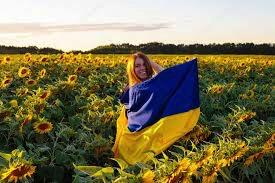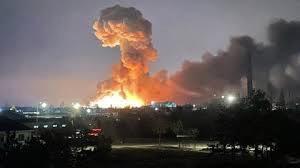 Current events in Ukraine, while still developing, suggest both direct and indirect effects on the U.S. and international commodities markets and hence cost of livestock production.
Current events in Ukraine, while still developing, suggest both direct and indirect effects on the U.S. and international commodities markets and hence cost of livestock production.
Ukraine has a population of 44 million and is regarded as an emerging free-market economy. Since the dissolution of the USSR, Ukraine has steadilly moved to democracy and has attempted to disengage from neighboring Russia. The Nation aspires to be a member of the European Union and ultimately NATO. Currently agricultural products are the major exports following a decline in chemical and steel production caused by a series of recessions attributed to mismanagement by previous administrations. Ukraine has a land area of 233,000 square miles of which 130,000 comprise arable and highly fertile soil. Ukraine is the World’s largest producer of sunflower seed with an annual crop approaching 15 million tons. The Nation is the third largest producer of potatoes (23 million tons). Corn production ranks fifth at 36 million metric tons and Ukraine is seventh-ranked in sugar beets (14 million tons), barley (7.3 million tons), canola (2.7 million tons) rye (400 million tons).
If following the invasion, and presumably an occupation of the nation by Russia or installation of a puppet government, agricultural production will fall as infrastructure has been disrupted and a long-term intensive insurgency is anticipated.
 If the Russian Federation as in past decades follows the Soviet practice of exploiting the potential of the Nation, current trading partners will be deprived of products. This will have an inflationary effect on the cost of cereals and oilseeds throughout the world. We should not forget the Holodomor of 1931 through 1934 when 3.9 million Ukrainians starved to death as a result of bungled Soviet attempts to enforce collectivisation on a productive agricultural nation.
If the Russian Federation as in past decades follows the Soviet practice of exploiting the potential of the Nation, current trading partners will be deprived of products. This will have an inflationary effect on the cost of cereals and oilseeds throughout the world. We should not forget the Holodomor of 1931 through 1934 when 3.9 million Ukrainians starved to death as a result of bungled Soviet attempts to enforce collectivisation on a productive agricultural nation.
Sanctions imposed on Russia as a result of the invasion of Ukraine will also have secondary effects on the U.S. and its economy. Since Russia is a major exporter of oil and gas, embargoing energy shipments even with continued supplies to sympathetic and autocratic nations such as China, will result in a rise in domestic prices. It is anticipated that a higher proportion of domestic fossil-derived fuels will be exported at ever increasing prices. Prior to the invasion, economists predicted a rise in crude oil from the mid $80s to $120 per barrel. On March 2nd WTI closed at $113 per barrel supporting forecasts of higher energy prices although encouraging greater production.
Should there be any inference in Black Sea shipping, prices of commodities could rise exponentially. Currently large multinational grain traders and processors, ADM and Bunge have suspended oilseed processing and shipping following an attack on a vessel under charter. Cargill and other multinationals operating grain terminals near the port of Odessa that is threatened by Russian forces have suspended operations and withdrawn expatriates. There is concern over access to the port of Poti in the nation of Georgia that serves as an entry point for U.S. chicken shipments to that country and neighbors in Eurasia. Shipping rates for container vessels westbound from the E.U. have spiked 16 percent in a week, again contributing to inflation on both sides of the Atlantic.
Depending on the nature of restrictions on emigration that may be imposed by a Russian occupier, there is a huge talent pool of trained technical workers with an emphasis on software with more than 200,000 programmers in the Ukraine. Westward migration of this potentially productive workforce could be beneficial to the E.U and North America. Canada will be the most likely nation to welcome qualified engineers and others with skills and training unless U.S. immigration laws are amended and updated.
At this time farmers, industrial workers and professionals in the U.S. are showing a high level of support for their counterparts in Ukraine who are the victims of unwarranted aggression. We earnestly hope that there will be a quick resolution to the crisis with minimal loss of life on both sides of the conflict although this currently appears unlikely. Restoration of peace and resumption of agricultural activities and exports will be necessary to maintain long-term stability in world markets.
The E.U. is a significant importer of egg liquid from Ukraine and it is possible that demand may increase with short to medium term opportunities for the U.S.
This is no time for schadenfreude and we can but hope that diplomatic efforts and pressure by the U.S. and its allies in the E.U. and even internal opposition in the Russian Federation will bring an end to the invasion and restore an acceptable way of life for the people of Ukraine.